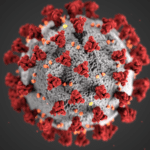In today's fast-paced world, stress has become an unavoidable part of our lives. It affects our mental well-being and can also impact our physical health. One common belief is that stress can lead to the development of peptic ulcers. But how exactly can stress cause a peptic ulcer?
What Is a Peptic Ulcer?
A peptic ulcer is a sore that develops on the lining of the stomach, small intestine, or esophagus. These ulcers are typically caused by the erosion of the protective lining due to the presence of stomach acid. The most common types of peptic ulcers are gastric ulcers, which occur in the stomach, and duodenal ulcers, which occur in the upper part of the small intestine known as the duodenum.
How is a Peptic Ulcer Diagnosed?
Diagnosing a peptic ulcer typically involves a combination of medical history evaluation, physical examination, and diagnostic tests. Here's a breakdown of the common methods used to diagnose peptic ulcers.
Medical History and Physical Examination
Your healthcare provider will begin by asking about your symptoms, medical history, and any risk factors for peptic ulcers, such as a history of NSAID use, smoking, or H. pylori infection.During the physical examination, your doctor may check for signs of abdominal tenderness, bloating, or other symptoms suggestive of a peptic ulcer.
Endoscopy
Endoscopy is the most accurate diagnostic test for peptic ulcers. During this procedure, a thin, flexible tube with a camera (endoscope) is inserted through the mouth and into the esophagus, stomach, and duodenum.The endoscope allows the healthcare provider to visualize the lining of the digestive tract and identify any ulcers or inflammation. Tissue samples (biopsies) may also be taken during endoscopy for further analysis.
Upper Gastrointestinal Series (Barium X-ray)
In this imaging test, you'll swallow a chalky liquid containing barium, which coats the lining of the esophagus, stomach, and duodenum.X-rays are then taken to capture images of the digestive tract. Barium highlights any abnormalities, such as ulcers or strictures, making them visible on the X-ray images.
Blood Tests
Blood tests may be conducted to check for the presence of H. pylori antibodies, which indicate an active or previous infection with the bacterium. However, it's essential to note that the presence of H. pylori antibodies doesn't necessarily confirm the presence of a peptic ulcer, as many individuals harbor the bacterium without developing ulcers.
Stool Tests
Stool tests may be performed to detect the presence of H. pylori antigens or genetic material (DNA) in the stool. Like blood tests, stool tests can help identify H. pylori infection but do not directly diagnose peptic ulcers.
Breath Test
A urea breath test may be used to detect the presence of H. pylori in the stomach. During this test, you'll ingest a solution containing urea labeled with a radioactive or nonradioactive marker.If H. pylori is present in the stomach, it will break down the urea, releasing carbon dioxide, which can be detected in your breath.
The Role of Stress in A Peptic Ulcer
Though debated, stress can indeed contribute to peptic ulcer formation. While not the primary cause, stress aggravates symptoms in those with ulcers. Stress prompts heightened stomach acid production, worsening existing ulcers, and compromises immunity, fostering susceptibility to H. pylori infection, a significant ulcer risk factor.
It's crucial to acknowledge that stress alone typically doesn't induce peptic ulcers in healthy individuals. Instead, it amplifies risk alongside factors like H. pylori infection or NSAID use. However, proactive stress management remains vital for overall well-being and may mitigate ulcer-related symptoms and complications, highlighting the importance of holistic health practices.
Managing Stress to Prevent Peptic Ulcers
While stress may not be the primary cause of peptic ulcers, managing stress is still crucial for overall health and well-being. Incorporating stress-reduction techniques into your daily routine can help minimize its negative effects on the body and may also alleviate ulcer symptoms.
- Practice Relaxation Techniques: Engage in activities such as deep breathing, meditation, yoga, or tai chi to promote relaxation and reduce stress levels.
- Maintain a Healthy Lifestyle: Adopting healthy habits such as regular exercise, balanced nutrition, and adequate sleep can help mitigate the effects of stress on the body.
- Seek Support: Don't hesitate to reach out to friends, family, or a mental health professional for support during stressful times. Talking about your feelings and concerns can help alleviate stress and improve overall well-being.
- Limit Stressful Triggers: Identify and minimize sources of stress in your life whenever possible. This may involve setting boundaries, prioritizing tasks, and learning to say no when necessary.
- Practice Mindfulness: Stay present in the moment and cultivate a positive outlook on life. Mindfulness techniques can help reduce stress and promote emotional resilience.
Northeast Digestive: Your Guide to Managing Peptic Ulcers
Factors such as H. pylori infection and NSAID use play a more significant role in ulcer formation, however, stress may exacerbate the symptoms of peptic ulcers and contribute to their development in certain individuals. That's why managing stress remains essential for overall health and well-being.
Transform your digestive health journey with Northeast Digestive's specialized care. Concerned about peptic ulcers? Benefit from our cutting-edge diagnostic capabilities, including endoscopy, to uncover the root cause. Book your consultation today and take proactive steps towards optimal digestive well-being.




